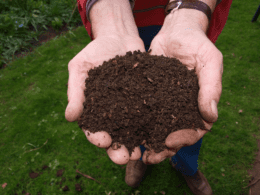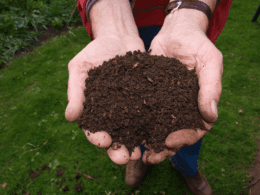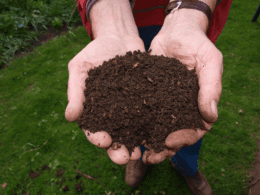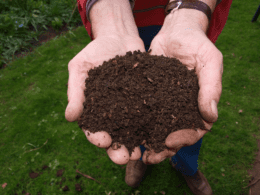Are you tired of feeling guilty every time you order a pizza and have to throw away the box? Do you wish there was a way to reduce your waste and give back to the environment? Well, there is!
Composting your pizza boxes is a simple and effective way to reduce landfill waste and provide nutrient-rich compost for your garden. By following proper protocol, you can turn your pizza boxes into a valuable resource for your garden and help the environment at the same time.
Not only will you be reducing your carbon footprint, but you’ll also be providing your plants with essential nutrients that promote growth and health. So, the next time you order a pizza, don’t toss the box in the trash! Learn how to compost it and give back to the earth.
Quick Takeaways
- Composting pizza boxes is an effective way to reduce landfill waste and provide nutrient-rich compost for gardens.
- Uncoated, unbleached cardboard pizza boxes are compostable, while corrugated-plastic or wax-coated cardboard should be avoided.
- Composting improves soil health, structure, and nutrient availability for plants, reducing the need for chemical fertilizers.
- Proper disposal techniques involve separating food-contaminated sections and cutting boxes into smaller pieces, and storing them in a dry, cool place to prevent molding and odors. Vermicomposting is also a good option for greasy pizza boxes.
Can Pizza Boxes Be Used in Composting for Lawn and Garden?
Pizza boxes can indeed be used in composting for a healthy lawn and garden. While greasy or oily parts should be removed to avoid attracting pests, the clean cardboard is an excellent source of carbon for composting. Its decomposition adds beneficial nutrients to the soil, promoting a thriving garden and lush lawn.
Compostable Materials
You can compost pizza boxes that are made of uncoated, unbleached cardboard, which is a compostable material, according to pre-existing knowledge.
Composting pizza boxes not only reduces landfill waste but also provides carbon compost material that can benefit your garden.
In addition to pizza boxes, other types of compostable materials include fruit and vegetable scraps, yard waste, and coffee grounds.
The benefits of composting go beyond just reducing waste. Composting can help improve soil health and structure, increase nutrient availability for plants, and reduce the need for chemical fertilizers.
By composting pizza boxes and other compostable materials, you can create a nutrient-rich soil amendment that can benefit your garden and reduce your environmental impact.
Materials to Avoid
Avoid including corrugated-plastic or wax-coated cardboard in your composting mix when dealing with takeaway food packaging. These materials can take a long time to break down and may contain harmful chemicals that can harm your garden. In addition, they can also contaminate the compost and make it difficult to use.
Instead, focus on using small amounts of bleached or ink-printed cardboard, which are safe for composting. If you have greasy pizza boxes, consider using them in your vermicomposting bin instead. The worms will break down the greasy bits and turn them into nutrient-rich castings that can benefit your garden.
By avoiding corrugated-plastic and wax-coated cardboard, you can reduce waste and create a healthy compost mix for your plants.
Proper Disposal Techniques
To properly dispose of pizza boxes, it’s important to separate any food-contaminated sections and throw them in the trash while recycling the remaining parts.
Here are a few cutting techniques and storage solutions to make the process easier:
-
Use a pair of scissors or a box cutter to cut the box into smaller pieces. This makes it easier to fit into the recycling bin or composter.
-
Store the pizza boxes in a dry and cool place to prevent molding and odors. A garage or shed is a good option.
-
Consider using a vermicomposter for greasy bits of the box. The worms will break down the cardboard and the grease will provide a food source for them.
By following these proper disposal techniques, you can reduce waste and help your garden thrive while also keeping your living space clean and safe.
Frequently Asked Questions
Can pizza boxes with tomato sauce stains be composted?
Yes, pizza boxes with tomato sauce stains can be composted in your backyard. However, avoid composting cheese and take note that commercial facilities may not accept food-contaminated pizza boxes due to longer decomposition time. Consider pizza box recycling or reuse as alternatives.
Is it safe to compost pizza boxes with cheese or other toppings on them?
Yes, it’s safe to compost pizza boxes with cheese or other toppings on them. However, make sure to remove any excess food and tear the box into small pieces to ensure proper breakdown. Remember to follow proper protocol for composting pizza boxes.
Are there any risks of pests or odors when composting pizza boxes?
When composting pizza boxes, pests and odors can be a risk if not managed properly. Keep the compost moist but not too wet, and maintain a temperature of 110-140°F to avoid attracting pests.
Can pizza boxes be composted in a backyard compost bin or only in commercial facilities?
You can compost pizza boxes in a backyard compost bin as long as you follow proper protocol. Commercial facilities may also accept pizza boxes for composting. Just make sure to remove any food and grease before composting.
How long does it take for pizza boxes to decompose in a compost pile?
Pizza boxes can take up to a year to decompose in a compost pile, but the benefits of composting outweigh the time it takes. Consider using alternative containers if time is a concern. Composting reduces waste and benefits gardens.









